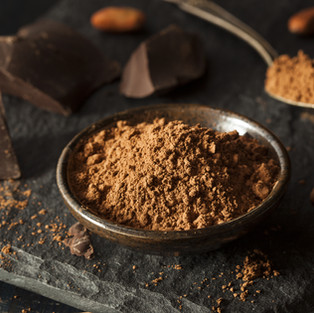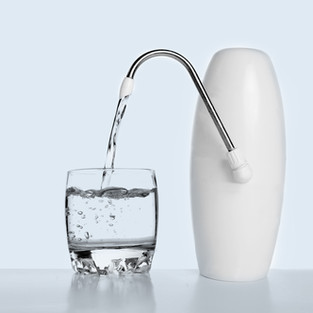How to Boost Your Immune System
- Vicky Sham

- Mar 13, 2020
- 6 min read
Updated: Oct 6, 2020
Friendly Microbes and Our Immune System
Do you know that 70% of your body's immune cells reside in your gut? If you want to fight pathogens and diseases, beyond washing your hands and social distancing, a great place to start is your digestive health.
Why is our gut so important? A human adult digestive tract houses trillions of microorganisms, also called microbiota or microbes. When I say microorganisms, you may be thinking of pathogenic bacteria, viruses and fungi, but most bacteria in our gut are beneficial and can do wonders for our health. They help us digest our food by fermenting indigestible fibres and produce short chain fatty acids that feed the cells on our gut lining, which in turn strengthen our immune system and protect us from inflammation.

Our Digestive System Can Provide Nutrients or Irritants
Another interesting fact - there is only a single layer of cells in our intestines to separate our body from the outside world. Yes, that's all the protection we need in the gut if we have a healthy and balanced microbiome.
A healthy gut allows nutrients to enter through digestion and absorption but forms a barrier to keep harmful pathogens out by working with our immune system. The gut also plays a role in the removal of wastes and toxins from our bodies. A healthy digestive system can provide nutrients to help us thrive, but a compromised gut can provide irritants and may lead to chronic inflammation and diseases such as inflammatory bowel diseases (IBD) and Crohn's disease.
Do you ever suffer from joint pains, muscle aches, bloating, skin rashes, allergies or fatigue? Were you born via C-section or formula fed? Do you have a history of taking antibiotics? Do you live in an urban, stressful environment? Are you concerned about the toxic exposures in your water supply or environment in general? If you answer is yes to any of the above, it is time to consider how to improve your gut health and the biodiversity of your microbiome.
What are the things we can do to boost our digestive health and immune system?
Eat Fresh Vegetables and Fibre
Eat a variety of fresh vegetables and fruits rich in fibre. Some fibres are indigestible by humans, but they can be fermented by bacteria to produce short chain fatty acids (SCFA). These SCFA in turn change the pH of the gut, encourages a healthy microbiome to thrive, which can then support our immune system and help maintain our glucose and cholesterol levels.
A diet low in fibre, rich in refined carbohydrates and fat can cause a reduction in the diversity of microbiota. If this type of diet is not reversed or corrected within a generation of humans, the extinction of microbe populations or the loss of biodiversity and the associated impact can carry over to the next generations. A lower gut flora diversity is also linked to obesity, insulin resistance and inflammation.

Polyphenols
Have you heard of resveratrol? It is a type of polyphenol found in red wine, it can act against pathogens and oxidative stress. Polyphenols are known to be anti-inflammatory and anti-infection. Polyphenols are rich in plants, fruits and plant-derived products, such as cocoa, berries, wine and tea. Our gut microbes play an important role of metabolising polyphenol compounds, i.e. converting them into bioavailable forms for our bodies to absorb. The science behind this is still emerging, but there is growing evidence to suggest that polyphenols can help maintain a healthy microbiome and protect us against pathogens.
You should feel good about grabbing some organic blueberries as snacks and enjoying a glass of red wine this evening. Also take pleasure in some 99% organic dark chocolate and remain completely guilt free!
Herbs and Spices
Many herbs and spices are naturally anti-inflammatory and support gut health. They add flavours and tastes without containing any calories. You can add unlimited amounts of herbs and spices to all your food and drinks, including soup, salad, omelettes, coffee, breakfast or dinner.
Twelve herbs & spices great for your gut health include
Basil
Black Pepper
Cardamom
Cinnamon
Dill
Fennel
Garlic
Ginger
Oregano
Rosemary
Sage
Turmeric
Of all the herbs and spices, turmeric is my favourite because it is cheap and versatile. You can add turmeric to eggs, soups, curries, smoothies, and even your lattes. Turmeric is similar to ginger and is what makes curry yellow. It is known for its anti-inflammatory properties, aids digestion, fat absorption and bowel movements. Remember to add black pepper to activate absorption.
Probiotics
The most common probiotics we can get from our diet include Bifidobacterium and lactobacillus, and are found in yoghurt, kefir, tempeh, kimchi, miso, sauerkraut, pickles and kombucha. You may try taking supplements but it is important to spend the time to research and figure out which ones work best for yourself because every individual is different.
Probiotics, whether in food or in supplement forms, are particularly helpful for people who have been exposed to pathogens, suffering and recovering from bacterial infections. They work by replenishing healthy bacteria in the gut of people who have been treated with antibiotics.
Prebiotics
Prebiotics are specific fibres that bacteria can feed on. Examples include Jerusalem artichokes, dandelion greens, leeks, chicory root, onions, quinoa and amaranth. Be careful that taking too many prebiotics could cause bloating and flatulence. People with SIBO should limit prebiotics.
If you are slightly confused, try to think of probiotics as the grass in your lawn and prebiotics as the fertilisers to help probiotics thrive. Probiotics = grass, Prebiotics = fertilisers
Limit Exposures to Xenoestrogens (BPA, Phthalates, Triclosan)
Xenoestrogens are compounds that mimic estrogen compounds and disrupt our hormonal systems. These endocrine disruptors can contribute to weight gain and affect our reproductive system.
A great way to support our digestive system and hormonal balance is to limit exposure to plastics. Opt for glass or BPA free plastic containers. What do you use to filter drinking water? Are you eating organic food whenever possible? Research your skincare, personal care products, make up and cleaning supplies for harmful chemicals. Watch out of ingredients such as parabens, phthalates, colorants, synthetic fragrances, preservatives and triclosan.
Physical Exercise
Exercise has been shown to alter the gut microbiome diversity, regardless what type of diet you follow. Exercise can increase the population of short chain fatty acids-producing microbes (an important marker of gut health), and other beneficial ones that help to maintain metabolism (promote lean body mass), reduce inflammation (protect against obesity, metabolic diseases, type II diabetes), oxidative stress and immune functions (protect from pathogens).
Whilst scientists are still researching on this topic, our current understanding is that exercise-induced changes on our microbiota last only as long as the activities are maintained. The key is to maintain a regular exercise routine as part of a healthy lifestyle. Be careful not to overtrain, because exercising at very high intensity can have a negative impact on your immune system.
Prioritise Sleep
Exercising combined with good nutrition can definitely help with your sleep quality. Getting a good night sleep will help you fight infections and diseases. Also, adequate sleep can help improve our mood, appetite control, blood sugar regulation, inflammation and much more.

What can you do to get better and more sleep? Decide whether you can fit in a little exercise in the morning to help with your sleep. Or get some sunlight and fresh air during the day. Work on your sleep hygiene, stretch, read or meditate. Gradually build a relaxation routine half an hour before your bed-time. Shut out all light or noises from your bedroom. Keep your bedroom cool. Or simply set a reminder to make yourself head to bed 10-15 minutes earlier tonight.
Be Responsible
There are plenty of things we can do to improve our health and immune system. You may be lucky to have a strong, healthy and resilient body, which means you may recover quickly and easily from sickness or infection. Please know there are others who may not be as fortunate, they may be elderly or suffering from long term illnesses and more vulnerable to infections. If you live in an area with higher risk of infection, please take appropriate precaution, wash your hands regularly and observe social distancing, which will help to curb the spread of coronavirus or any common flu.
Let's Put Them into Practice
Hope you enjoy reading this. Let me know if you'd like to work with me and implement some of these recommendations. You can certainly do this on your own but it is much easier and more fun with the support of an accountability partner.
Sign up for a free consultation now. Or download a self-guided health coaching programme for free!

Try a Golden Latte Recipe
Add all ingredients in saucepan and whisk over low heat until its ready to serve.
1 cup unsweetened nut milk
1/4 tsp turmeric
1/4 tsp cinnamon
1/4 tsp ground ginger
1/3 tsp nutmeg
1/2 tsp maple syrup or honey (optional)
Grind of black pepper
Further Information
1. Mucosal T cells in gut homeostasis and inflammation
2. The Microbiome
https://www.hsph.harvard.edu/nutritionsource/microbiome/
3. Diet Induced Extinctions In The Gut Microbiota Compound Over Generations
4. Richness of Human Gut Microbiome Correlates with Metabolic Markers
5. Polyphenols-gut microbiota interplay and brain neuromodulation
Stefania Filosa, Francesco Di Meo, and Stefania Crispi
6. Exercise Changes Our Gut Microbes, But How Isn't Yet Clear
Ashley Yeager, The Scientist
7. Mutual Interactions among Exercise, Sport Supplements and Microbiota
8. Exercise Alters Gut Microbiota Composition and Function in Lean and Obese Humans
Jacob M Allen, Lucy J Mailing, Grace M Niemiro, Rachel Moore, Marc D Cook, Byran A White, Hannah D Holscher, Jeffrey A Woods
9. Endurance exercise and gut microbiota: A review
Muria Mach, Dolors Fuster-Botella
10. Environmental Working Group - Skin Deep







































Comments